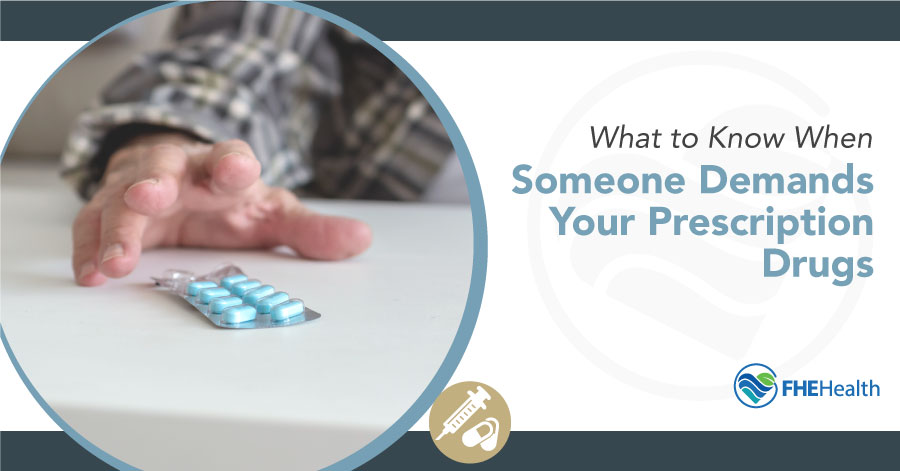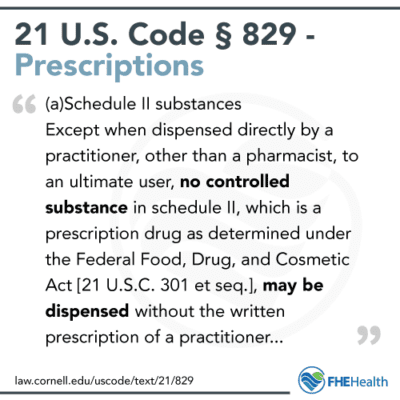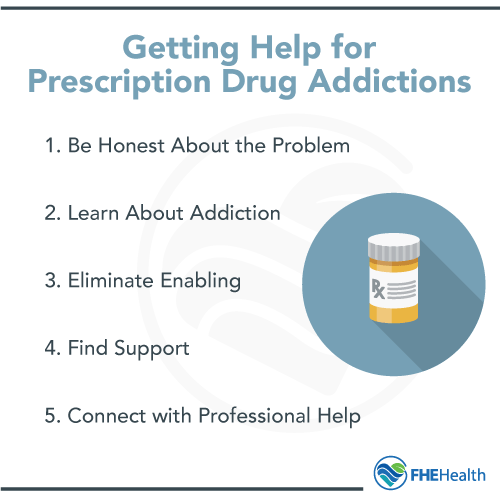
Being in a relationship with someone who’s abusing a substance can be challenging and confusing. On the one hand, most individuals want to see their loved ones live a life without addiction. On the other, it’s difficult to watch someone go through the stress and discomfort of withdrawal. As a result, many feel that they have no choice but to provide their loved ones with medications or turn a blind eye to dwindling supplies.
Treatment options for conditions such as chronic pain, depression and attention-deficit hyperactivity disorder are becoming more widely used, improving the quality of life for many. Unfortunately, prescription drug misuse is also on the rise and has become a serious public health crisis.
While most people take their prescriptions responsibly, certain drugs such as opioids, stimulants and antidepressants are particularly prone to being misused. In fact, according to the 2017 National Survey on Drug Use and Health, about 18 million people misused prescription medications at least once that year.
Anyone who’s had a partner, parent or child who is addicted knows that substance abuse is destructive, not only to the individual but also to their relationships. Boundaries that were once clearly defined begin to erode as the individual becomes increasingly dependent on prescription drugs.
It makes sense that someone’s desire to see their loved one happy can result in justifying behaviors. They may want to believe their loved one’s dependence on a medication isn’t serious or that they have a legitimate need for the drug that their doctor is ignoring. However, while enabling someone’s substance addiction may feel like the easiest option, this approach doesn’t help them in the long term. It’s important to step back and take an objective look at the individual’s prescription drug habits.
Is It Illegal to Share or Sell Controlled Drugs?
 It may seem harmless to share prescription drugs with someone else, especially if no money is involved. For example, if two colleagues take the same medication but one forgets theirs at home, it may be tempting for the other to help. However, numerous state and federal laws specify who can take prescription medications and under what circumstances.
It may seem harmless to share prescription drugs with someone else, especially if no money is involved. For example, if two colleagues take the same medication but one forgets theirs at home, it may be tempting for the other to help. However, numerous state and federal laws specify who can take prescription medications and under what circumstances.
Taking prescription drugs is legal when the person named on the script purchases and takes the medication as prescribed by their doctor. If someone other than the named person buys or uses the medication, it’s considered illegal. It’s also against the law for a doctor to prescribe a controlled substance to a person who doesn’t need it. Penalties for breaking this law range from hefty fines to jail time.
Aside from being illegal, there are several reasons to not share prescription medications. First of all, all medications have side effects, which doctors take into consideration when choosing the right treatment for their patients. Drugs are also prescribed in different doses with different instructions depending on the individual’s needs, complete medication regimen and personal factors. Taking prescriptions outside the supervision of a doctor is dangerous and can have unintended consequences.
Is It Illegal to Fake Symptoms to Get a Prescription for a Controlled Drug?
Many states, including Florida, have laws in place that make it illegal to obtain prescriptions by making false statements or misrepresenting symptoms or conditions. In other words, it’s illegal to lie to a doctor to get a prescription. It’s also against the law to lie to a doctor or withhold information about medication the individual is already taking.
Can Prescriptions Be Filled More than Once?
To get around the laws that doctors have to follow, particularly with prescriptions such as opioids or tranquilizers, some people may try to fill the same prescription at multiple pharmacies. However, thanks to advancements in state-run prescription monitoring programs, pharmacy networks and management software, most pharmacies in the country automatically track prescriptions. In most cases, a pharmacy can see if a prescription has already been filled at another location.
In a similar vein, it’s also illegal to seek a prescription from more than one healthcare provider. This practice, called doctor shopping, is prohibited in all 50 states under fraud statutes. These laws prohibit patients from intentionally withholding information from their doctor such as what other doctors they’re receiving care from and what prescriptions they’re currently taking.
There are also strategies that some patients use to obtain more prescription medications. In some instances, prescription pads have been stolen from doctors’ offices and used to write false prescriptions. Patients have also attempted to alter their prescription to get more medication than the doctor ordered. Both actions are illegal and could result in fines or jail time.
Getting Help for Prescription Drug Addictions
 Addiction can take over a relationship and change a person’s personality and priorities. If an individual demands access to someone else’s prescription medications, they need professional help.
Addiction can take over a relationship and change a person’s personality and priorities. If an individual demands access to someone else’s prescription medications, they need professional help.
There are several things to consider and steps to take when living with someone who has an active addiction.
1. Be Honest About the Problem
Even though anyone can develop an addiction, there are still strong stigmas that make it difficult to confront it. As a result, friends and family members may look the other way when their loved one’s prescription drug use gets out of hand. It may be easier to pretend a problem doesn’t exist, but that doesn’t help the individual or the relationship. Being honest about the problem and facing it head-on is necessary for deciding the next move.
2. Learn About Addiction
Addiction isn’t a character flaw or a lack of willpower but a complex disease of the brain. Reading up on addiction research and reaching out to an experienced treatment specialist can provide a clearer picture of the situation.
3. Eliminate Enabling
An individual’s prescription drug addiction doesn’t just affect them; it affects everyone in the home. The longer someone lives with a person with an active addiction, the more they’re affected by it. Unfortunately, this can result in household members enabling their loved one’s addiction. This can take on several different forms, from directly supplying the addictive substance to preventing the individual from experiencing the consequences of their behavior.
4. Find Support
Addiction can be isolating, but it’s important to remember that countless households are dealing with the same problems. Local support groups can be a valuable resource for emotional support and helpful tips for coping with a loved one’s addiction
5. Connect with Professional Help
There are effective treatment options to address substance use disorders. Treatments generally include multiple components including talk therapy and medication, depending on the individual’s needs. FHE provides comprehensive treatment for many people, helping them overcome their addiction to prescription drugs. For more information and to speak with an intake counselor, call (866) 971-1566.






